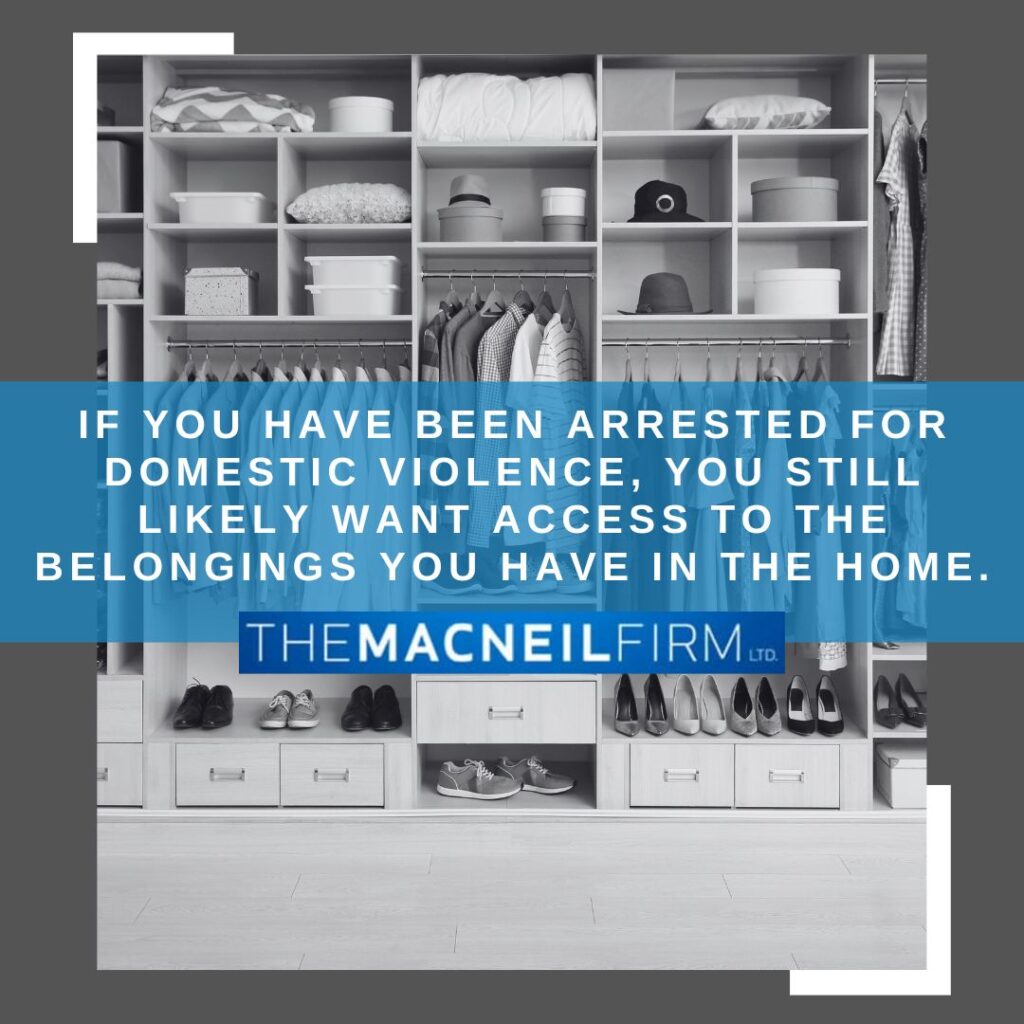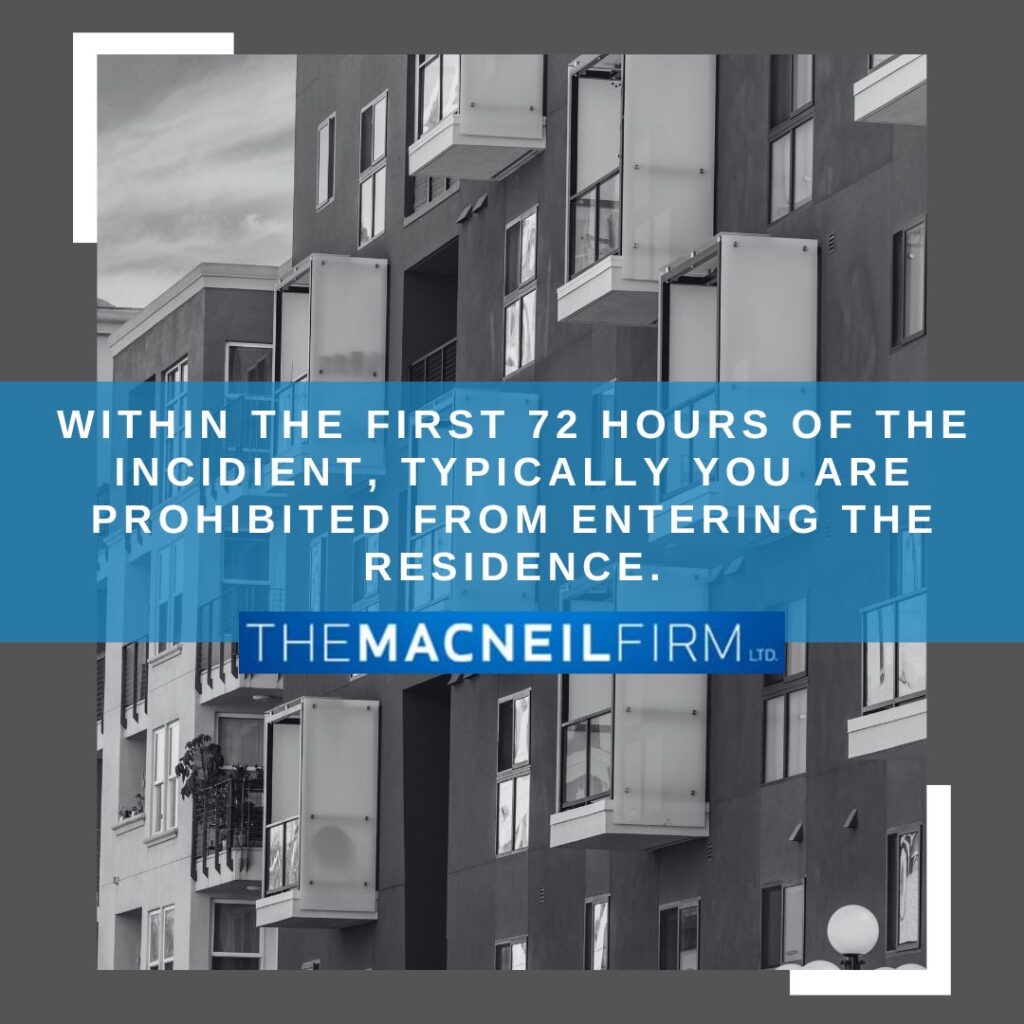The two most common criminal charges associated with domestic violence are domestic battery and violating an order of protection. If you have been arrested, our domestic violence lawyers are here to help. At The MacNeil Firm, we can employ a variety of strategies to ensure your rights are protected and to help you get the best outcome in your case. Call us today at (708) 218-0947 to request a free consultation.
Domestic battery is defined as, without legal justification: Causing bodily harm to a family or household member by any means; or making physical contact of a provoking or insulting nature with a family or household member. If you are arrested for domestic battery, you will likely be charged with Class A misdemeanor. The charge may be elevated to a felony if you have been previously convicted of the same charge or another related offense.
Within the first 72 hours of a domestic violence incident, the defendant will be prohibited from entering the residence. After the 72-hour period, they will be allowed to collect their belongings unless there is a separate order of protection or condition of bond prohibiting them from going on the premises or contacting the alleged victim.
If that’s the case, the defendant’s attorney can make arrangements for a police escort to the property for the collection of certain items, such as toiletries, clothes, tools, or anything else that the defendant needs in order to work and survive. It is best to arrange police escorts of this nature at a time when the complaining witness will not be present just to minimize the potential of an argument or improper contact.
Restrictions after a domestic battery charge
As a condition of bail, a defendant to domestic violence charges will be barred from leaving the state, committing a new crime, possessing weapons, and consuming illegal substances. In addition, domestic violence cases require a 72-hour cooling-off period, and potentially an order of protection or restraining order. In some domestic violence cases, the defendant will have to wear a GPS ankle bracelet to ensure that they are not going to prohibited locations, which we call “no-go” zones.
Do police question children?
Law enforcement agents generally don’t like to involve young children in criminal cases if they don’t have to. It is more likely that teenage children will be questioned than very young children. However, a police officer can talk to any witness. As a defense attorney, I can object to certain witnesses based on competence. When extremely young children are involved, there must be a separate hearing to determine competence. It is important that children are protected and are not victimized further by involving them in the legal process.
At The MacNeil Firm, our domestic violence lawyers are here to help you
If you have been arrested and charged with domestic violence, you have to build a solid defense and our domestic violence lawyers have the experience to help you through the legal process. Domestic violence is a broad term that encompasses many different forms of abuse, and being charged can result in serious legal consequences and a lifelong stigma, even if no physical violence ever actually took place.
Individuals convicted in a domestic violence case can not only face jail time and fines, but also lose the ability to find gainful employment, own a handgun or rent an apartment. A person can be charged with anything, but whether or not they will ultimately be convicted will depend on the strength of the prosecutor’s case and the evidence at their disposal.
If you need a qualified attorney, contact us today for a free consultation.




